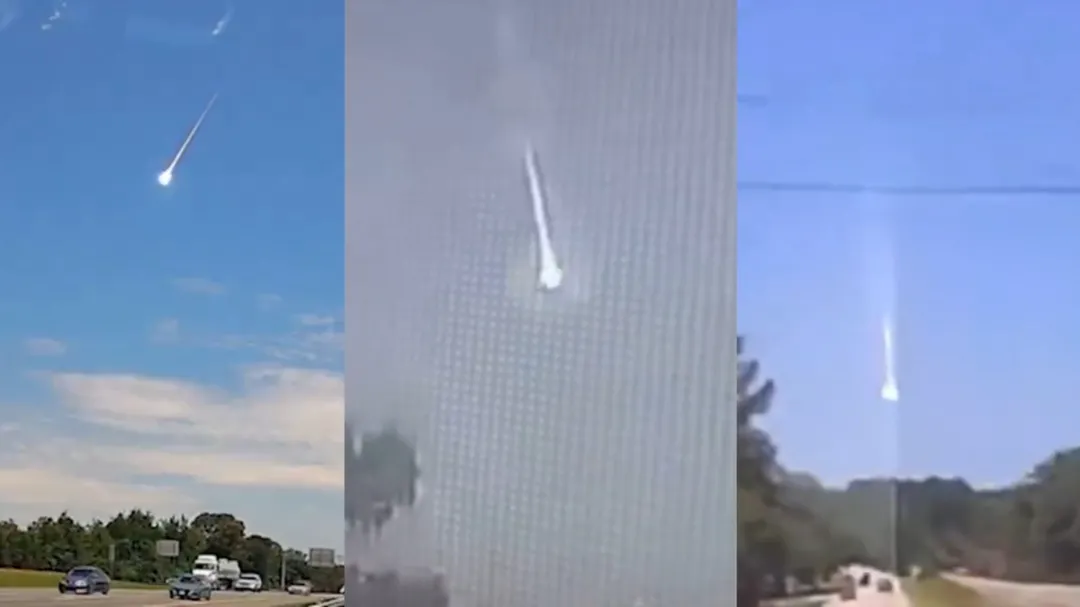Fiery Meteorite That Pierced Georgia Home Confirmed Older Than Earth, Scientists Say
ATHENS, Ga. — A fiery meteorite that tore through a Georgia homeowner’s roof this summer has been confirmed to be older than the Earth itself, according to University of Georgia planetary geologist Scott Harris.
Witnesses across several Southern states reported seeing the bright fireball streak across the sky on June 26 before it struck a home outside Atlanta. Traveling faster than the speed of sound, the object punched a hole through the roof, dented the floor, and left behind fragments no larger than a cherry tomato.
A Rare and Ancient Visitor From Space
Harris examined 23 grams (0.8 ounces) of the meteorite’s fragments and determined they formed approximately 4.56 billion years ago — about 20 million years before Earth itself came into existence.
“This meteorite belongs to a group of asteroids in the main asteroid belt between Mars and Jupiter,” Harris explained, noting that the object can be traced back to the breakup of a much larger asteroid about 470 million years ago.
Scientific Significance and Next Steps
The University of Georgia team, working alongside researchers at Arizona State University, plans to submit their findings to the Nomenclature Committee of the Meteoritical Society. They are proposing to name the space rock the McDonough Meteorite, after the Georgia city where it landed.
If accepted, the name will join the official registry of meteorites, marking McDonough as a location of significant astronomical discovery.
Public Fascination With the Fireball
The daylight meteor was visible to people in multiple Southern states, sparking a flood of calls, videos, and social media posts. Such daylight fireballs are rare, making this event not only visually spectacular but scientifically invaluable.
“This is an extraordinary find,” Harris noted. “It offers us a chance to study material that predates our planet — a literal piece of the early solar system.”
Have you ever seen a meteor streak across the sky? Share your experience in the comments and follow SaludaStandard-Sentinel.com for more incredible science and space news.







